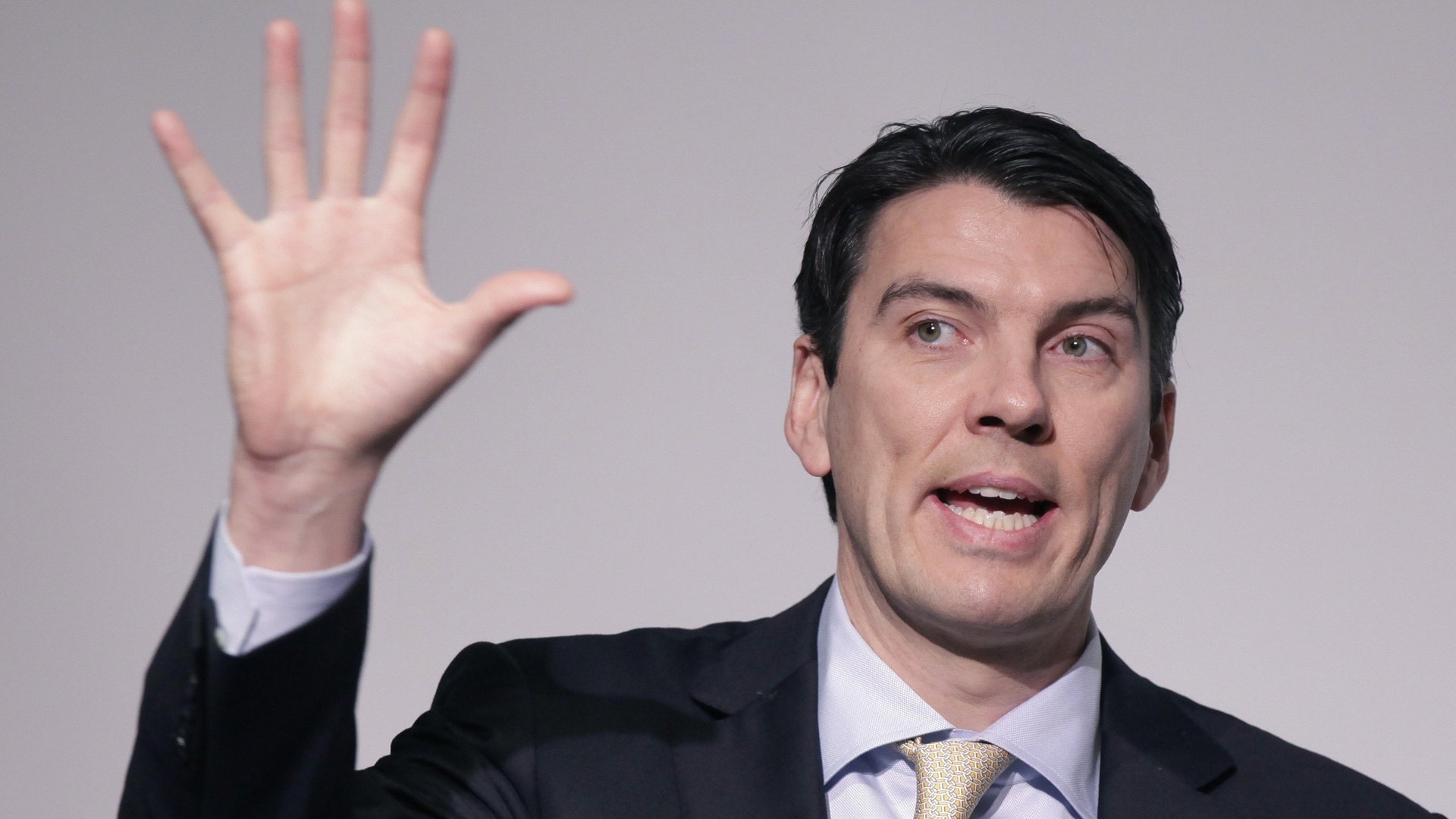The biggest job in media is at the phone company
His list of career accomplishments, at age 45, is long. He’s been a journalist, an entrepreneur, a Google executive, head of AOL, and is now leading one of three main growth areas at New York’s Verizon.


His list of career accomplishments, at age 45, is long. He’s been a journalist, an entrepreneur, a Google executive, head of AOL, and is now leading one of three main growth areas at New York’s Verizon.
Following Verizon’s planned $4.8 billion acquisition of Yahoo in next year’s first quarter, AOL CEO Tim Armstrong will be the guy in charge of making the phone company a rival to Google and Facebook.
He has a lot of ground to make up.
Assuming the company still wants to buy Yahoo after a massive hack of 500 million of its email users, Verizon will own properties generating about $4.6 billion a year in digital ad dollars, according to eMarketer research. That’s still just a fraction of Facebook’s $12.1 billion and Google’s $53.1 billion.
And unlike its forecasts for Facebook and Google, eMarketer projects no growth for Verizon’s piece of the pie even while the overall pie is growing—by as much as 20% a year, based on an estimate from Pew Research.
What’s worse for Armstrong, and everyone else competing for ad dollars, is Morgan Stanley’s assertion (paywall) that 85% of every new digital ad dollar in the first quarter of 2016 went to Facebook and Google.
What to do? Armstrong has said he wants to focus on selling video ads on mobile. “I don’t think companies can move fast enough into online video,” he said in a CNBC interview Sept. 26. “The engagement is much higher with online than in offline video if it’s a great piece of video.”
While Google sells ads based on its search capability and Facebook on social connections, Armstrong says he will sell on brand. “Brand is really important” to consumers of media, Armstrong told CNBC. “We are trying to build the largest brands in the world that are trusted in media.”
Are Yahoo and AOL the most trusted brands in media? Most of the sites’ content is aggregated from original producers such as CNBC, MarketWatch, TheStreet, Reuters, Bloomberg, and the Associated Press, among a slew of others. True, Yahoo has hired some big names like Katie Couric, but those celebrity journalists aren’t highly visible on the site.
Then there’s that email hack. Not something likely to inspire trust. Especially in light of the recent allegations that CEO Marissa Mayer’s emphasis on product over security made the company vulnerable to hackers.
A recent report by the New York Post suggested Verizon may drop its bid to buy Yahoo or renegotiate terms due to the hack. It also quoted sources saying Verizon may instead pursue buying Twitter. Shortly after Yahoo announced the breach, Verizon said that it was evaluating the matter. The company has declined to comment further.
Armstrong said on CNBC—he was interviewed the same day the report in the Post came out—that Verizon is probing to understand when Yahoo knew about the attack; he didn’t comment on buying Twitter. “We are calmly and methodically looking at the situation,” he said. “At the end of the day, it is the consumer trust we are focused on.”